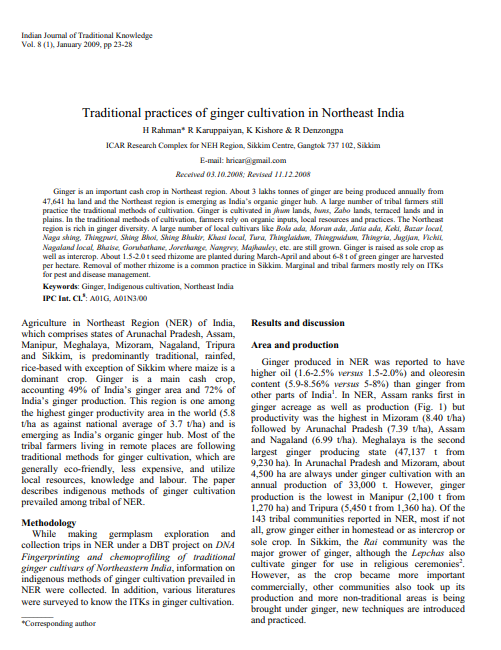
Traditional Practices of Ginger Cultivation in Northeast India
Publication Year: 2009
Author(s): Rahman H , Karuppaiyan R , Kishore K
Abstract:
Ginger is an important cash crop in Northeast region. About 3 lakhs tonnes of ginger are being produced annually from 47,641 ha land and the Northeast region is emerging as India’s organic ginger hub. A large number of tribal farmers still practice the traditional methods of cultivation. Ginger is cultivated in jhum lands, buns, Zabo lands, terraced lands and in plains. In the traditional methods of cultivation, farmers rely on organic inputs, local resources and practices. The Northeast region is rich in ginger diversity. A large number of local cultivars like Bola ada, Moran ada, Jatia ada, Keki, Bazar local, Naga shing, Thingpuri, Shing Bhoi, Shing Bhukir, Khasi local, Tura, Thinglaidum, Thingpuidum, Thingria, Jugijan, Vichii, Nagaland local, Bhaise, Gorubathane, Jorethange, Nangrey, Majhauley, etc. are still grown. Ginger is raised as sole crop as well as intercrop.
Source of Publication: Indian Journal of Traditional Knowledge
Vol/Issue: 8(1) , 23-28 pp.
Country: India
Publisher/Organisation: CSIR
URL:
https://nopr.niscpr.res.in/bitstream/123456789/2969/1/IJTK%208%281%29%2023-28.pdf
Theme: Traditional Agriculture | Subtheme: Food Crops



